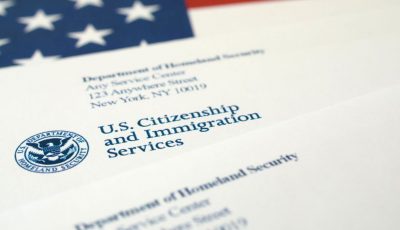‘USCIS’ conduct on CW-1 permits heightens need for court’s scrutiny’

Sirok
The conduct of the Department of Homeland Security’s implementation of the U.S. Citizenship and Immigration Services’ agency rule pertaining to Commonwealth-only worker, or CW1-permits, would only serve to heighten the need for the federal court’s scrutiny and the issuance of a declaratory judgment on this issue, according to the Commonwealth Utilities Corp.
In CUC’s response to the U.S. District Court or NMI’s notice of intent to dismiss the lawsuit filed by CUC and its 18 foreign workers, CUC legal counsel James Sirok asserted that under the U.S. Administrative Procedure Act allows any CW-1 worker, including the 18 workers, to continue to work until USCIS makes a final determination on that worker’s petition for renewal (extensions of status/stay).
“There is no limit to this time period under the APA,” Sirok said.
Sirok said plaintiffs CUC and its 18 foreign workers are entitled to a broad statutory right, which DHS and USCIS are attempting to narrowly restrict by placing a 240-day limit on it through conduct which is contrary to law.
Sirok said DHS and USCIS have no specific statutory authorization or jurisdiction to modify by agency regulation provisions of the APA, a law enacted by the U.S. Congress.
This conduct, the lawyer said, supports plaintiffs’ position that their claims are not rendered moot simply by DHS’s implementation of an USCIS agency rule.
Sirok said CUC, as a plaintiff, still has a cause of action because it still has an expired CW-1 employee, whose authorization expired on Dec 31, 2015, unable to work until at this time as a result of the position being taken by DHS and USCIS that they cannot work after Dec. 31, 2015.
“This is the present situation notwithstanding the anticipated adoption of the rule (“new rule”) allowing for a CW-1 renewal worker to continue to working up to 240 days after the expiration of the CW-1 authorization when a timely petition for a renewal of a stay/status has been filed,” he said.
Sirok pointed out that this anticipated “new rule” provides some relief, but such relief is still contrary to existing law.
U.S. District Court for the NMI Chief Judge Ramona V. Manglona recently expressed her intent to dismiss plaintiffs’ lawsuit against Homeland Security Secretary Jeh Charles Johnson and other federal officials, once the final rule on Commonwealth-only worker, or CW-1 permits, has gone into effect on Feb. 14, 2016.
Manglona said if CUC and its 18 foreign workers object to dismissal of their lawsuit over the delay of CUC’s petition for renewal of CW-1 permits, even in light of publication of the final rule, they may file a memorandum in opposition to dismissal.
Manglona noted that last Jan. 13, the federal government announced that the final rule “Enhancing Opportunities for H-1BI, CW-1, and E-3 Nonimmigrants and EB-1 Immigrants,” which amends the regulations so as to authorize continued employment for CW-1 nonimmigrants if a petitioner has timely filed a petition requesting an extension of stay, is scheduled to be published in the Federal Register on Jan. 15, 2016, and will be effective 30 days from the date of publication.
Manglona said it appears that implementation of these changes in the regulations will prevent a recurrence of the harm that CUC complains of in the lawsuit.
As of last week, 17 of 18 foreign workers who joined CUC’s lawsuit, have received approvals of petition for renewal of their Commonwealth-only worker, or CW-1 permits.
Last Jan. 12, Manglona ordered CUC and the 18 workers to explain why their lawsuit should not be dismissed as moot.
Manglona issued the order as she granted plaintiffs’ motion for withdrawal for a preliminary injunction.
CUC currently employs 34 nonresident workers holding the CW-1 CNMI only non-immigrant transitional worker status.
Manglona earlier denied plaintiffs’ request for a temporary restraining order that would allow these CW-1 workers to immediately return to work.
Manglona said plaintiffs, however, may still pursue their claim for a permanent injunction.
Sirok then filed plaintiffs’ first amended complaint against the same defendants—Homeland Security Secretary Johnson, Immigration and Customs Enforcement Director Saarah Saldana, and U.S. Citizenship Director Leon Rodriguez.
In the first amended complaint, Sirok added a claim that plaintiffs are able to work after the expiration date of their respective authorizations so long as the authorizations remain valid in accordance with law.



























